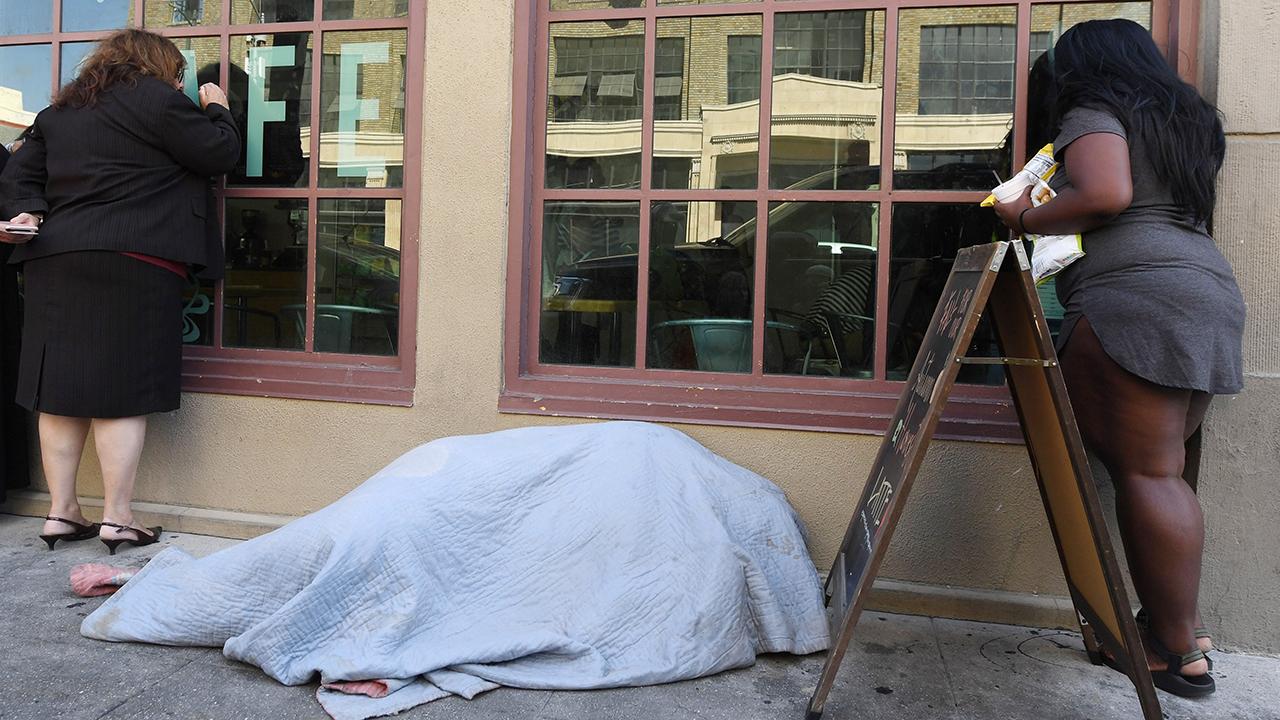Rent control could negatively affect these US cities
Critics say rent control measures discourage construction, which would meet demand and drive down prices.
As many metropolitan areas grapple with how to address housing affordability challenges, many cities – and some states – are considering rent control measures as a way to keep prices in check, to the dismay of many in the real estate sector.
The National Apartment Association released a new study modeling the impact of a 7 percent cap on growth, like the measure signed into law in Oregon. Researchers detailed a number of negative consequences that would result, in varying degrees of intensity, across different U.S. cities.
AS SANDERS PEDDLES RENT CONTROL, HERE'S WHAT IT COSTS TO LIVE IN CANDIDATES' HOMETOWNS
One of the main arguments against rent control as a means to shore up affordability is that it discourages construction. Critics argue that without the policy, builders would construct new properties to help meet demand and price points would be lowered naturally.
Investments, too, may decline as the government dictates terms instead of letting the free market decide them. That could lead to a decline in property values – and a loss in income from the lower-priced apartments.
CALIFORNIA RENT CONTROL LAW MAY EXACERBATE HOUSING CRISIS, EXPERTS WARN
Proponents of the policy say it could protect tenants from eviction and decrease tenant turnover resulting from rapid rent increases.
Here’s a look at how four different cities would be impacted by a 7 percent rent control cap, according to the National Apartment Association:

The famous Willis Tower in Chicago, formerly known as Sears Tower, on a hot summer's day in Chicago, Illinois, USA
Chicago
In Chicago, a 7 percent rent control measure would put 3,840 units at risk of not being built by 2030, researchers estimate. The city needs to build more than 35,200 new apartments over the same timeframe.
Apartment rental income would decline by about $24.6 million per year, while properties would lose $487.8 million in value.
Losses in tax revenue were expected to be the steepest for Chicago out of any of the four cities examined – at about $6 million per year.
Illinois has recently begun considering whether to rescind a statewide rent control ban that has been in effect for more than two decades.

Denver, Colorado, USA downtown skyline viewed from Red Rocks at dawn.
Denver
Out of the nearly 46,000 new apartment units Denver needs to build to keep up with demand over the next decade, researchers estimate that a 7 percent cap on rental prices would put about 9,340 apartment units at risk.
Property values would decline by an estimated $462 million as rental income fell by $23.3 million annually.
The city would take in $3.5 million less each year in property tax revenue, too.
Colorado lawmakers have also debated overturning a law to allow local governments to implement rent control.

Portland, Oregon, USA skyline at dusk on the Willamette River.
Portland
In Portland, Oregon, where statewide rent control was signed into law, researchers predict the negative effect on the new apartment supply to be slightly less dramatic – a decline of 2,796 units through 2030. The city needs an estimated 36,000 to keep up with demand.
Property values will decline by $213.9 million as a result of decreased income – rental income is expected to fall by $10.8 million each year.
Property tax revenues will decline by more than $5 million annually.
CLICK HERE TO READ MORE ON FOX BUSINESS

The Space Needle, Great Wheel, piers and skyscrapers in Seattle.
Seattle
Construction would drop significantly in Seattle if a 7 percent rent control measure were imposed, researchers said.
While the city needs more than 77,500 new units within the next decade in order to keep up with demand, the policy would result in the construction of about 1,740 fewer units each year.
Property values would decline by as much as $655 million.
Tax losses are projected to be about $5 million per year.
A Seattle city councilmember unveiled a rent control proposal in September, capping increases at 2 or 3 percent. The state, however, currently has a ban on rent control.
GET FOX BUSINESS ON THE GO BY CLICKING HERE
Oregon passed the first statewide rent control measure in February – limiting increases to 7 percent annually, plus inflation.
California Gov. Gavin Newsom signed a statewide rent control provision in October.
Independent Vermont Sen. Bernie Sanders has also proposed a national rent control measure as part of his comprehensive 2020 presidential housing platform.
Meanwhile, New York City strengthened rent stabilization and rent control measures in June.




















